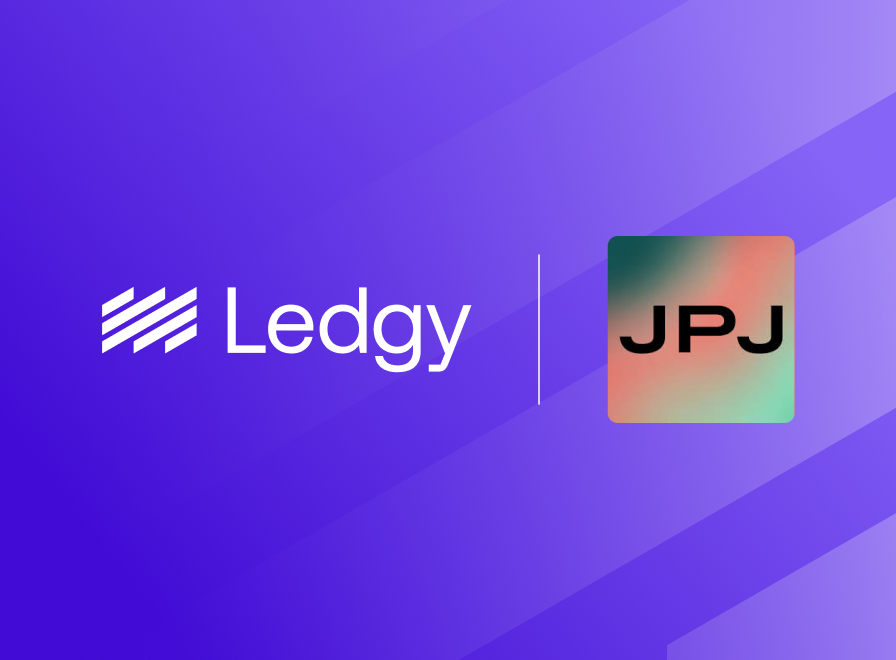Why the time is right for Ledgy to build for the public markets



In recent years, the tech ecosystem swung from an all-out bull market to a very different macroeconomic environment where capital was much harder to raise. The rapid reprioritisation left many founders and boards having to rethink their strategies and business models.
Now, with early-stage funding having slowly increased since the turn of the year and the IPO markets showing signs of life, we may be turning a corner again. New AI-led products promise to reshape the way people work and live, potentially heralding a step-change in computing and technology.
But no-one can afford to be complacent. A founder’s job is to step back from the day-to-day and identify opportunities that bring the company closer to its original mission and purpose.
Our mission is to empower every team globally with equity. Since Ben, Timo and I founded Ledgy in 2017, we’ve built our business around helping private companies, mostly in Europe, manage their equity. Just like Amazon started with books, we started with the private markets. We’ve listened closely to feedback from our customers – some of the most innovative technology businesses in the world – about their ambitions for the future, and we’re excited to create the infrastructure to support these companies as they eye their potential transition into the public markets.
What's changing?
In one sense, not much. Private markets are still core to our strategy. But private companies are only one part of the picture. The value of all public equities worldwide is estimated to be close to $100 trillion.
And (almost) every public company starts life as a private entity. As private companies move on to the public markets, a huge amount of friction is created as they have to migrate away from technologies and service providers that can’t support this step. it’s a huge relief if they can rely on core service providers right through that crucial transition phase.
Private companies have benefited hugely over the last two decades from greater venture capital investment and political backing for the ambitions of entrepreneurs. We should all celebrate these boosts for the startup and scaleup ecosystems. But the elephant in the room – or on the stock exchange – is that this innovation hasn’t transformed the public markets in the same way.
Why now?
While the pace of technological change has transformed the private technology landscape, things have moved more slowly in the public markets. Core services like share settlements are run on technologies that are often decades-old. The time taken for retail investors’ trades to complete, for example, is still measured in days, not seconds. (The SEC’s recent ruling to shift a two-day share settlement cycle to a one-day ‘T+1’ protocol promises to speed this up. But a day-long settlement cycle still lags most people’s expectation of modern technology services to execute requests in near real-time.)
There are very good reasons for the slower pace of development in the public markets, of course. Because any investor is free to buy and sell shares in publicly traded stocks, companies offering their shares on the public markets have to account for consumer protections. They need greater focus on risk management and regulatory compliance compared to private companies, which predominantly sell their shares and options to sophisticated institutional investors.
But the SEC’s T+1 ruling is just one more example of the US setting the standards in financial markets innovation. As the biggest market for equities (both private and public), the US will always be hugely important. But the US’s dominance has meant that the software that powers public markets tends to be designed and built to serve the needs of US-listed companies. Generally, companies listing on European stock exchanges must adapt their needs to software that’s designed for a different market. We think this is part of the problem that has limited Europe’s advancement in finance and technology relative to the US.
Dated infrastructure and a slower pace of change means that public companies often fail to give accurate, up to date information to some of the stakeholder groups that matter most of all – executives, employees and other internal shareholders such as advisors and non-executive directors. In Europe, companies have the secondary challenge of overcoming software that’s designed around US systems and protocols.
Meanwhile, public companies often operate a wide range of different share plans, from broad-based schemes designed for all full-time employees through to tailored LTIPs for senior leaders. It’s challenging for internal HR, finance and legal teams to communicate about different plans with the right stakeholder groups, at the right time. And older systems fail to account for the many different vesting and performance conditions that entitle people to their equity. Many public companies lack a single source of truth that can instantly answer a fundamental question for any internal shareholder: how much are my equity holdings actually worth to me?
Companies shouldn’t lean to one stock exchange over another simply because of infrastructure and support requirements. Instead, share plan providers should be flexible and configurable enough to support a company’s public markets ambitions, whether they want to list in London, Amsterdam, New York or Stockholm. Our aim is to combine the best of modern software with a serious focus on compliance and risk management, to offer public companies the best possible way to manage share plans and deliver value for all stakeholder groups, wherever they are in the world.
What's next?
There has been a lot of work behind the scenes to begin fulfilling everything publicly listed companies need from their share plan management software. From supporting new types of share plan, to building real-time share prices into employees’ dashboards, we have devoted significant effort to reshaping the product around the requirements of public companies.
A vital piece of the puzzle, of course, is integrating the infrastructure that makes share trading and settlements happen. Right now we’re selecting the best partners to help us offer the full range of stock trading services to our customers. Expect to hear much more on this in the near future.
Our early conversations with public companies have been enormously encouraging, and we are welcoming new public companies on board as customers at an increasing pace. If you are interested in learning more about how Ledgy can support your needs as a public company, email me on yoko@ledgy.com, or set up a conversation with one of our team.



Stay up to date! 🎉
Subscribe to our newsletter and receive the latest insights on the equity world








.png)